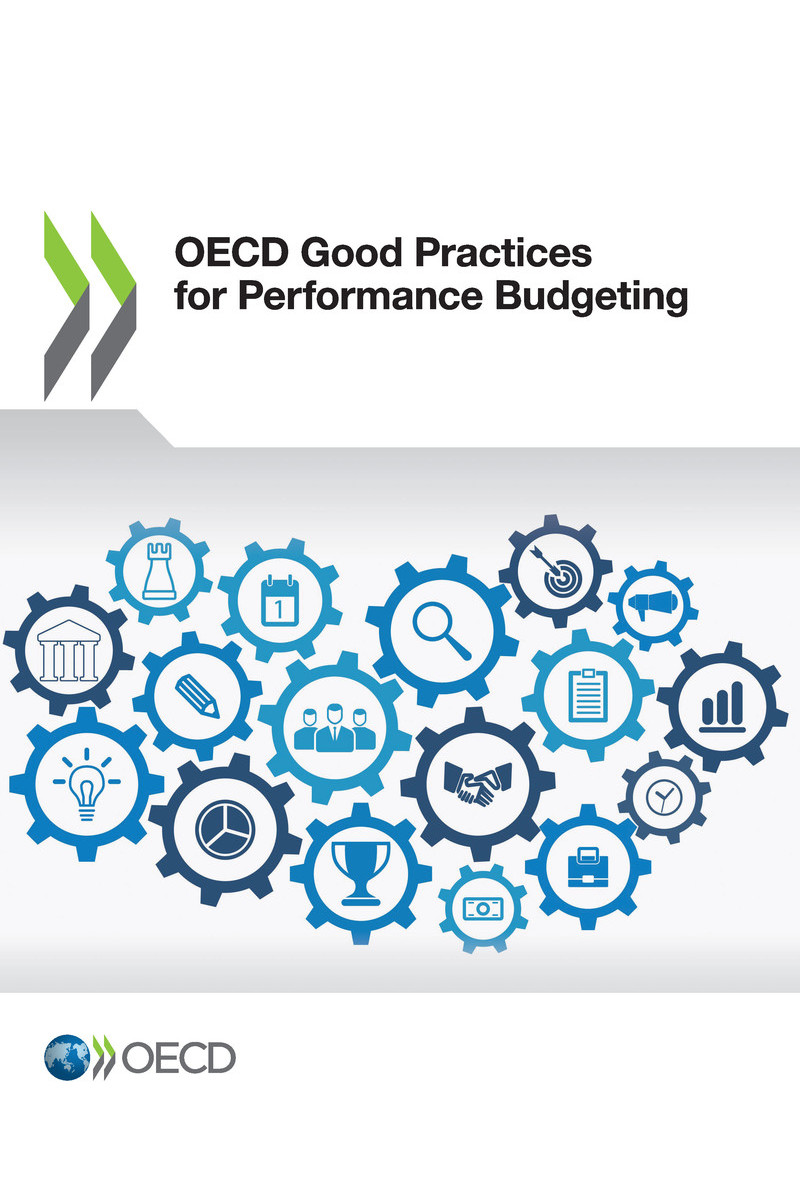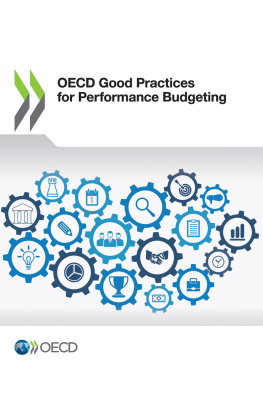OECD - OECD Good Practices for Performance Budgeting
Here you can read online OECD - OECD Good Practices for Performance Budgeting full text of the book (entire story) in english for free. Download pdf and epub, get meaning, cover and reviews about this ebook. year: 2019, publisher: OECD Publishing, genre: Politics. Description of the work, (preface) as well as reviews are available. Best literature library LitArk.com created for fans of good reading and offers a wide selection of genres:
Romance novel
Science fiction
Adventure
Detective
Science
History
Home and family
Prose
Art
Politics
Computer
Non-fiction
Religion
Business
Children
Humor
Choose a favorite category and find really read worthwhile books. Enjoy immersion in the world of imagination, feel the emotions of the characters or learn something new for yourself, make an fascinating discovery.
OECD Good Practices for Performance Budgeting: summary, description and annotation
We offer to read an annotation, description, summary or preface (depends on what the author of the book "OECD Good Practices for Performance Budgeting" wrote himself). If you haven't found the necessary information about the book — write in the comments, we will try to find it.
OECD: author's other books
Who wrote OECD Good Practices for Performance Budgeting? Find out the surname, the name of the author of the book and a list of all author's works by series.
OECD Good Practices for Performance Budgeting — read online for free the complete book (whole text) full work
Below is the text of the book, divided by pages. System saving the place of the last page read, allows you to conveniently read the book "OECD Good Practices for Performance Budgeting" online for free, without having to search again every time where you left off. Put a bookmark, and you can go to the page where you finished reading at any time.
Font size:
Interval:
Bookmark:

OECD (2019), OECD Good Practices for Performance Budgeting , OECD Publishing, Paris, https://doi.org/10.1787/c90b0305-en .
Performance budgeting is an innovative budget practice that has been widely adopted by OECD countries. The OECD Network of Senior Budget Officials has maintained a strong interest in the relationship between budgetary governance and performance management initiatives. This resulted, in 2004, in the creation of a network dedicated to exploring and learning from countries experience in the closely related areas of performance budgeting, spending reviews and programme evaluation.
This report presents the OECD Secretariats advice on good practice principles and practices in the area of performance budgeting. This is based on the results of several OECD surveys of member countries, OECD country budget reviews, and exchanges of information between OECD government officials in the Senior Budget Officials Network on Performance and Results. It also takes account of recent papers published by the OECD, the World Bank and the International Monetary Fund.
The report was prepared by Mr Ivor Beazley, Senior Policy Analyst under the supervision of Mr. Edwin Lau, Head of Division, Budgeting and Public Expenditures Division, Directorate for Public Governance, and Mr Jon R. Blondal, Special Counsellor, Budgeting and Public Expenditures Division, Directorate for Public Governance.
Performance budgeting is defined by the OECD as the systematic use of performance information to inform budget decisions, either as a direct input to budget allocation decisions or as contextual information to inform budget planning, and to instil greater transparency and accountability throughout the budget process, by providing information to legislators and the public on the purposes of spending and the results achieved.
Performance budgeting has been around since the 1960s, but was adopted more widely by OECD countries from the 1990s. Over the past decade there has been a rapid increase in the adoption of performance budgeting by OECD countries so that all but 4 countries reported having some form of performance budgeting in 2018.
Performance budgeting takes a wide variety of forms. The OECD classifies these forms as presentational, performance informed, managerial and direct. In this order, each form represents a progressively stronger link between performance measurement and budgetary decision making. The 2018 survey results showed that countries were more or less equally divided between the first three approaches. None reported using direct performance budgeting, which directly links budget allocations to performance measures. This highlights the inherent limitations of such a technocratic approach, given the political nature of the budget, as well as the many conceptual and practical problems in relating resource allocations and outcomes in the public sector.
Performance budgeting reforms have often proved disappointing compared to initial expectations. Despite this nearly all countries that initially adopted performance budgeting have persisted in their efforts, progressively modifying their approaches based on experience. The purpose of this paper is to distil the lessons learned, identify good practice principles and provide specific examples of good practices from OECD countries. This is based mainly on the work of the OECD Senior Budget Officials Network on Performance and Results, which has been researching and sharing experience on performance budgeting since 2004.
The rationale, objectives and approach to performance budgeting are set out in a strategic document such as an organic budget law or public financial management reform programme.
The interests and priorities of multiple stakeholders in the budget cycle are reflected in the objectives and design of the performance budgeting system.
Font size:
Interval:
Bookmark:
Similar books «OECD Good Practices for Performance Budgeting»
Look at similar books to OECD Good Practices for Performance Budgeting. We have selected literature similar in name and meaning in the hope of providing readers with more options to find new, interesting, not yet read works.
Discussion, reviews of the book OECD Good Practices for Performance Budgeting and just readers' own opinions. Leave your comments, write what you think about the work, its meaning or the main characters. Specify what exactly you liked and what you didn't like, and why you think so.



















